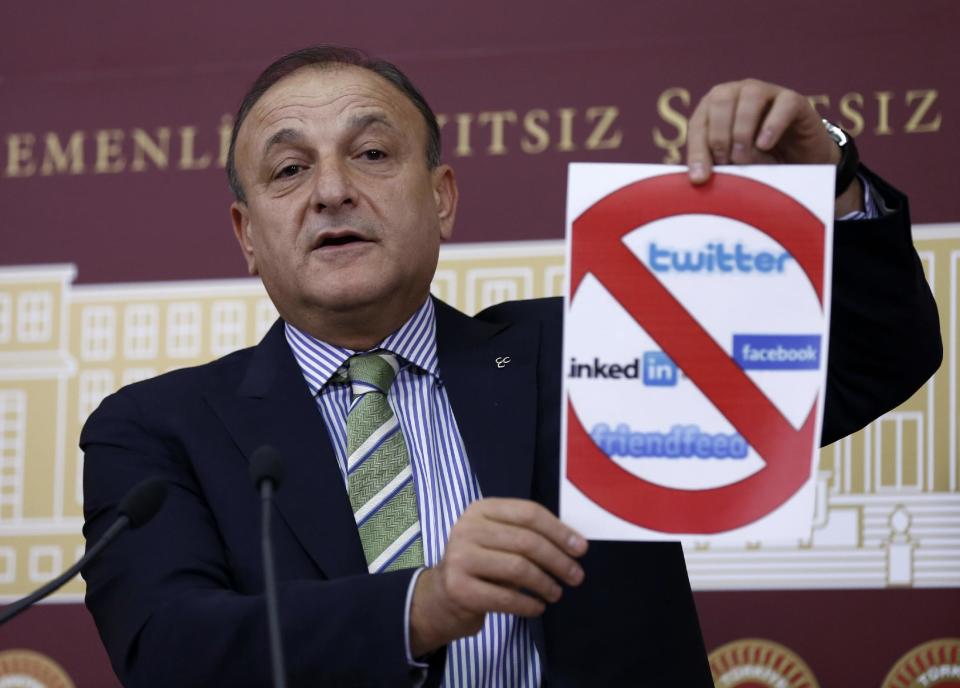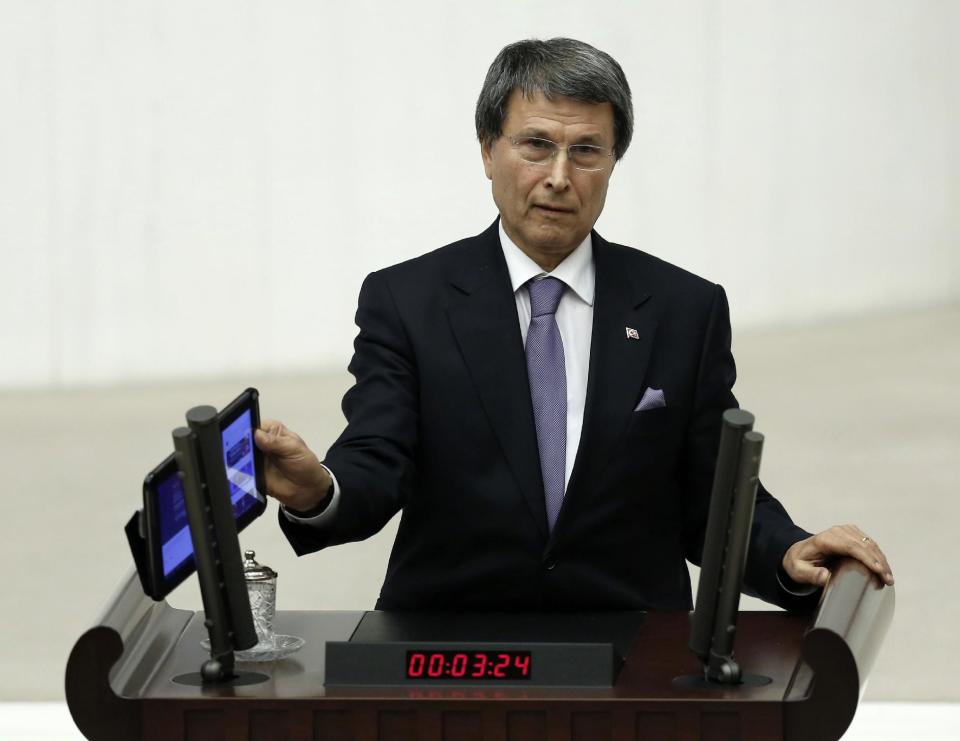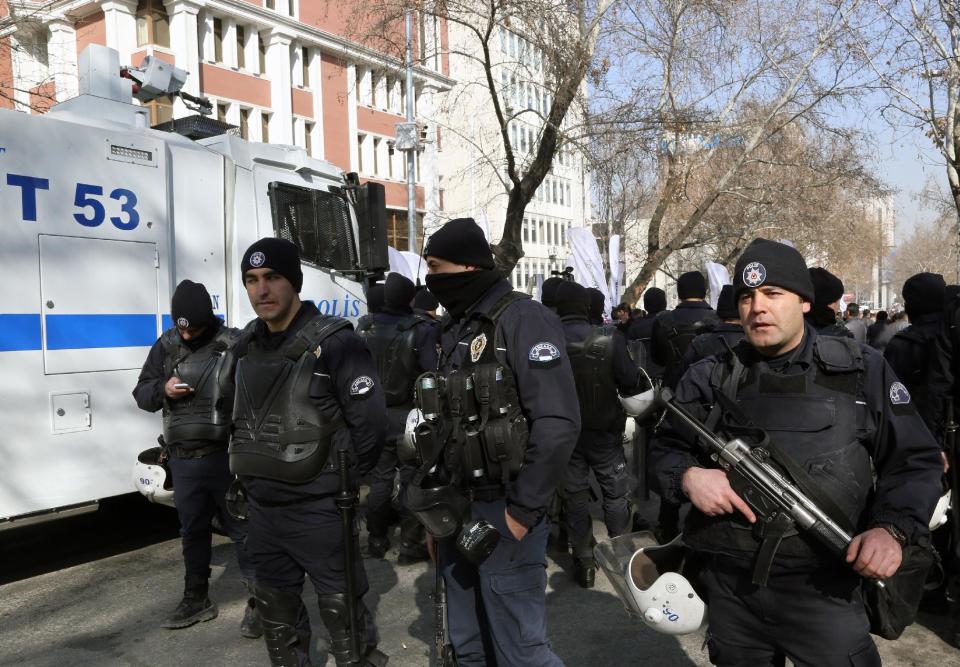Turkish Internet restrictions raise more concerns
ANKARA, Turkey (AP) — New Internet restrictions approved by parliament are raising concerns the government is trying to control the flow of information amid a corruption scandal, and a senior European official on Thursday called the measures "a step back" for media freedom.
Under the legislation approved Wednesday, the country's telecommunications authority would be allowed to block websites or remove content that is deemed to be in violation of privacy without seeking court approval. Internet providers would also be forced to keep data on peoples' online activities and make them available to authorities when requested.
The bill, which still needs to be signed by President Abdullah Gul, would extend the government's already tight grip on the Internet. Turkey, which hopes to become a member of the European Union, has already come under criticism for censorship and restriction on media freedoms.
In a tweet, European Parliament President Martin Schulz called the legislation "a step back in an already suffocating environment for media freedom."
The government has rejected accusations of censorship and says the legislation will protect privacy.
Emma Sinclair-Webb, senior Turkey researcher at Human Rights Watch, said: "The last thing Turkey needs right now is more censorship." She urged Gul to "veto these new measures to ensure Turkey does not violate its obligations to respect the right to access to information, freedom of expression, and privacy rights."
The legislation comes at a time when Prime Minister Recep Tayyip Erdogan's government has been trying to contain a corruption and bribery scandal that led him to dismiss four government ministers. Erdogan's government has replaced hundreds of police officials and prosecutors since the scandal erupted in December, including many involved in the investigation. Turkish news reports say those moves have thwarted a second probe that sought to question his son and others.
Erdogan insists the probe is a conspiracy to discredit his government before local elections in March.
In recent days, some recordings of wiretapped telephone conversations allegedly involving Erdogan or businessmen have been leaked onto the Internet.
"The aim is to drown the allegations instead of investigating them," said Riza Turmen, a legislator from the main opposition People's Party, during the debate in parliament.
More than 40,000 websites, many of them pornographic, are blocked in Turkey, according to Engelli Web, a site which monitors banned websites.




